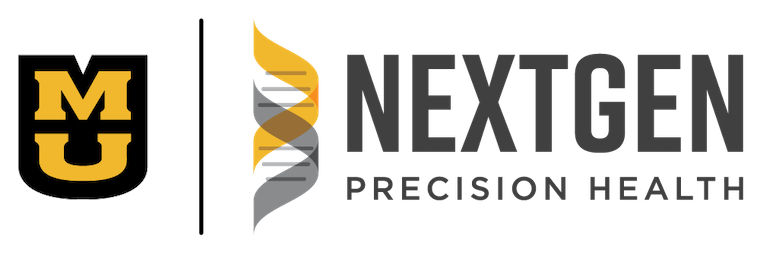When facing a cancer diagnosis, patients at MU Health Care’s Ellis Fischel Cancer Center can benefit from a team of experts working together to find the right solution for their unique needs.
Dedicated cancer specialists regularly band together to discuss new or challenging cases. These meetings, known as tumor boards, bring together a variety of experts with different focus areas and perspectives — all determined to use precision medicine to come up with the most personalized and effective treatment plan possible.
“We’ve all heard that two heads are better than one. Well, what if we have 15 people in the room, all devoted to a person’s case?” said MU Health Care pathologist Richard Hammer, MD. “Having experts each with their own niche specialty come together means we can evaluate every angle to develop the best treatment plan.” Not all diseases affect each patient the same way. Based on a person’s or a cancer’s genetics, a cancer may affect one person differently than another. Tumor boards are a forum for the team to discuss a patient’s unique variations, with the goal of designing the most effective therapies and treatment plans to not only treat the cancer, but to prevent it from coming back, as well.
Clinicians and researchers at MU Health Care are using the most advanced technology in these forums to help design their treatment plans. In collaboration with the pharmaceutical and diagnostics company Roche, MU Health Care is the first U.S.-based institution to pilot the NAVIFY™ Tumor Board solution.
The tool streamlines the flow of information, putting crucial data — radiology and microscope slide images, pathology reports, electronic medical records and more — directly in front of cancer doctors. This standardization saves time that would otherwise be spent manually gathering test results and charts from different sources. Results have shown that NAVIFY™ gives the care team better data and more time for in-depth discussions as it develops personalized treatment plans.
Not only do clinicians have more time to discuss a case, they will soon have another tool to provide them with specific treatment recommendations unique to a person’s own biology.
“This spring, we will be able to use NAVIFY™ to incorporate data from FoundationOne, a genetic profiling tool that looks at mutations in different types of cancer,” Hammer said. “We will be able to see in real time genetic testing results of the cancer and will have access to treatment recommendations designed to work with a patient’s cancer unique molecular variations. It will really streamline how we approach cancer care and will give us the best options possible to beat cancer.”
While the technology streamlines tumor boards across various specialties, providers are exploring ways to use NAVIFY™ to proactively improve the health of populations. They are looking forward to not only the immediate impact on patients, but also how the technology may evolve to help prevent people from developing certain cancers altogether.
“When we have a better understanding of a cancer’s genetic mutations, we can develop treatments that will be the most effective with as few side effects as possible,” said Kevin Staveley-O’Carroll, MD, PhD, former surgical oncologist at Ellis Fischel Cancer Center. “Beyond just sequencing a patient’s cancer genes, we will one day soon be able to extend our approach and look at a person’s individual microbiome, or the bacteria in their gut. If we can understand how a patient’s specific bacteria interact with certain foods, we may be able to boost the body’s natural immune response to help target tumors.”




